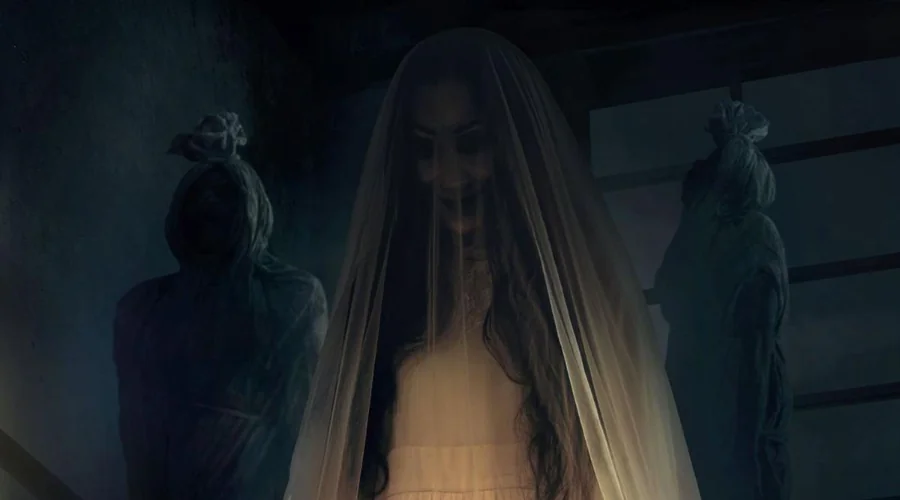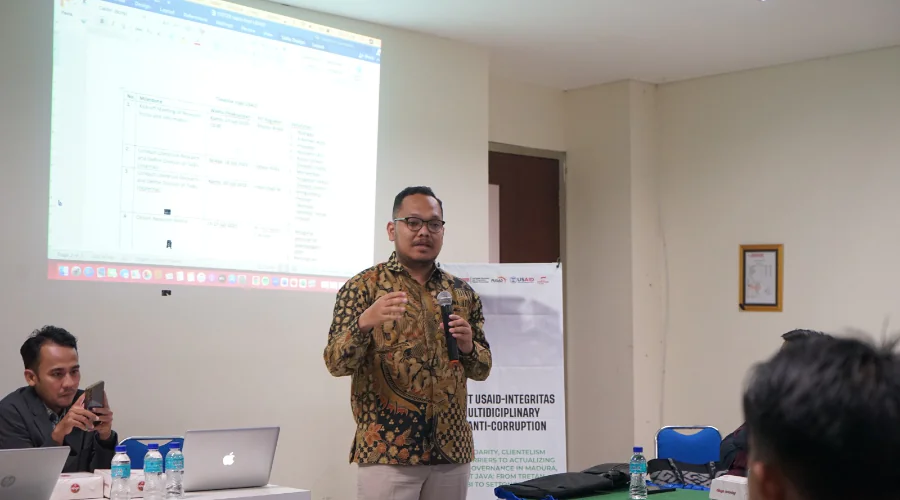
- 27 Aug
- 2022
Pengabdi Setan 2: Communion (Foto: dok. Rapi Films)
Devoted to Satan's Slave Film, UM Surabaya Lecturer Talks about the Myth of Female Ghosts
Recently, Joko Anwar's film Pengabdi Setan 2: Communion has become a topic of conversation among netizens regarding the story of Mother's terror that haunts audiences in all cinemas in Indonesia. Even up to the release of this film has been witnessed by 6 million viewers in 21 days of showing in theaters.
Ghosts in Indonesian horror films are always synonymous with women, including in the film Servant of Satan 2, played by actress Ayu Laksmi. Why is it always like that?
Lecturer at the University of Muhammadiyah Surabaya (UM Surabaya) Radius Setiyawan said that the depiction of women in scary horror films is not new in Indonesia. According to him, Indonesian films tell a lot about the relationship between mysticism and women.
He gave an example of several horror films in Indonesia in the 2000s which featured this representation. Female horror films such as Suzanna, The Curse of the Suckling Sister, Hospital Tunnel, Return of the Squat Sister and many other similar films.
"The presence of female ghosts in screen culture in Indonesia was not born in a vacuum," explained Radius Saturday (27/8/22)
He explained that women in many films play the main character in a ghost film. One example that has been very popular for a long time is the figure of Sundel Bolong. The Sundel Bolong ghost can be interpreted as a symbol of a woman whose presence is unwanted and even considered disgusting. This is illustrated by his figure visually. Not ideal, tends to be messy and spooky.
According to Radius, myths originating from horror films that are continuously believed and are still being talked about by society can be interpreted as a sign of how women are positioned. While this symbolic violence has been going on for a very long time.
It is the same with the ghost of the mother in the film Pengabdi Setan who is portrayed as a victim of the social stigma construction which interprets that married women must have children. You have to be able to reproduce, to finally walk the path of joining the Satan Servants sect in order to have offspring.
Not only that, the figure of a woman in a sexy dress who lives in a flat (Tari) played by Ratu Felisha, seems to still be an iconic figure in Indonesian horror films. Several scenes of sexist chatter carried out by thugs up to ghost terror on women who are told to work as billiard waiters tell that the good and bad identity of women, from the way they dress to their lives, are still shackled by the construction of societal judgment. Becomes a sinful woman who at the end of her life is ensnared by a ghost's terror and brought to hell.
“If we take a closer look, the formation of myths about female ghosts in Indonesia indicates the interference of political ideology to control society and perpetuate power. Power in this context is gender power relations. Where patriarchal ideology gripped so tightly," he said again.
The figure of a female ghost is a strategic step to silence women and perpetuate patriarchal ideology.
Radius, who is also an Alumni of Masters in Media and Cultural Studies, explained that through discourse which is continuously reproduced through film, language and symbols, patriarchal ideology has taken root in people's minds, so it is not easy to change, including changing people's interpretations of ghost myths. these hurt women.
According to him, the problem of why ghosts are always synonymous with women is also related to the structure of society in Indonesia.
"The division of work areas between men and women where women are synonymous with (domestic) housework is one of the problems," he said again.
Therefore, women are often depicted as occupants of the house. In fact, until he dies, he still haunts the administration of inheritance in the next generation.
"The structure of this society unconsciously places ghosts and women's representations in a film closely and perpetuates patriarchal myths and domesticates women," concluded Radius.










(0) Comments